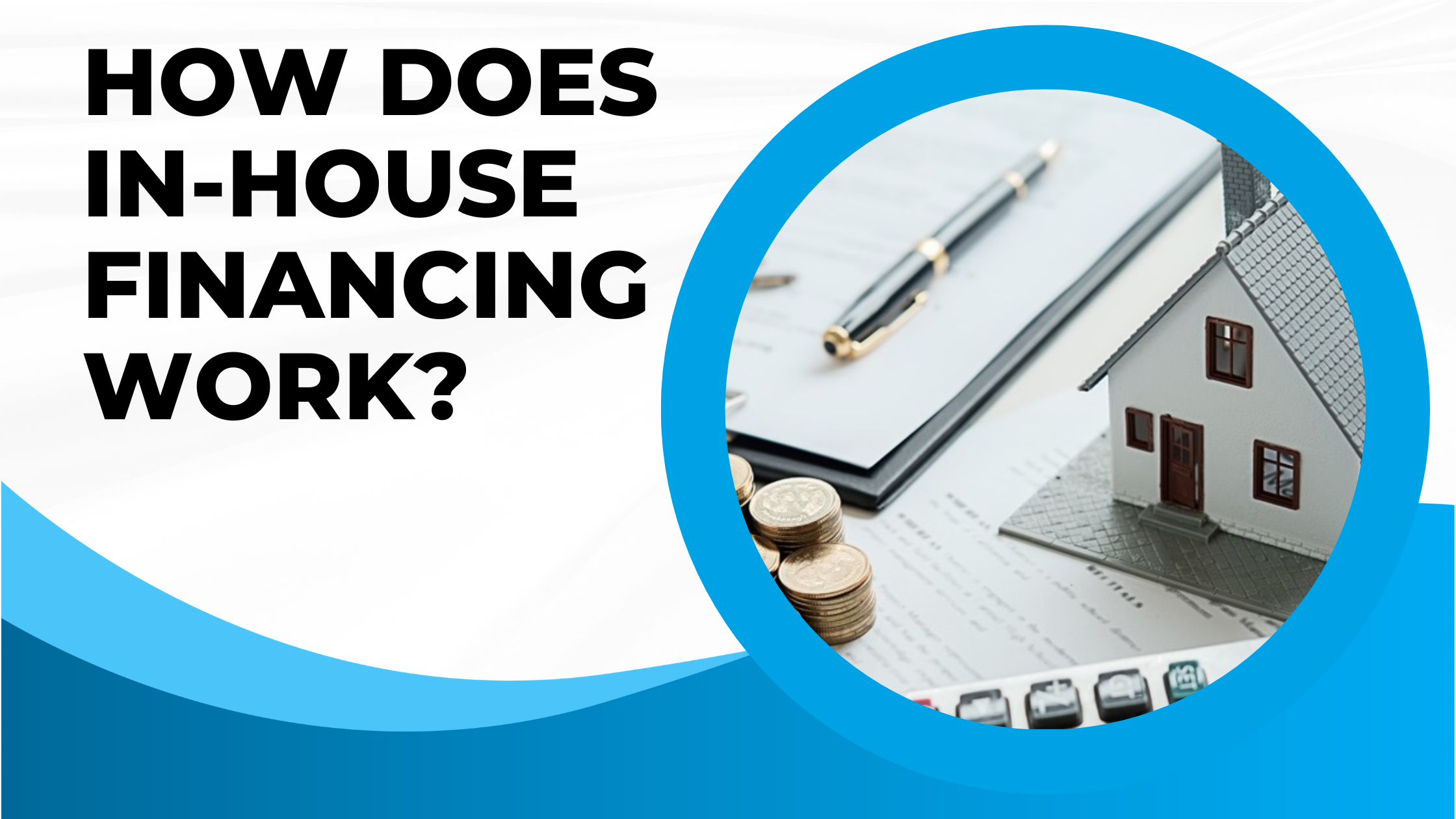When was the last time you walked into a car dealership and saw a beautiful machine but couldn’t quite afford it?
There’s a good chance that the salesperson told you that you didn’t have to pay the full amount immediately. He or she probably said,
“we can provide in-house financing.”
If you were immediately put off by the unaffordable price, you probably didn’t stick around to find out what the salesperson was talking about.
Had you stuck around a little longer and asked what they meant by “in-house financing,” you might have realized that there was a way you could buy that car without immediately paying the full amount.
Table of Contents
ToggleWhat Is In-House Financing?
In this case, in-house financing means that the seller (car dealership) can loan you the money you need to buy the product they are selling at an agreed-upon interest rate and payment plan.
Essentially, when you sign up for in-house financing, you will be getting a loan from the seller to buy the car from them, and you will have to make payments with interest until you have paid off the car.
You can see why this kind of financing is advantageous to both parties:
- You get the car you want without having to rob a bank or use your child’s college fund
- The car dealer gets to sell the product to you
- You get to pay it off in small agreed-upon installments
- The dealer not only sells you the car but gets you to pay for it gradually with interest
- This deal offers easy pre-approval, extended warranties, highly flexible interest rates, and a credit-building opportunity

The idea here is that both parties get to make this deal rather quickly since in-house financing can be processed at an expedited speed.
No one has to wait for banks to go through lengthy processes that could take days, weeks or even months.
For the most part, the lender is the dealership itself. However, there are some cases where the “house” might not have that capacity.
Instead, there is the option to partner with other lenders who can help process your in-house financing much faster than your typical bank.
Does In-House Financing Affect Your Credit Score?
One of the biggest advantages of in-house financing is that you get a loan without necessarily going through the rigorous processes that come with other facilities like banks. This doesn’t mean that in-house financing options have nothing to do with your credit score.
The truth is that almost every legally licensed lender checks your credit score through any one of the major credit bureaus like TransUnion.
The biggest difference between lenders who deal with in-house financing and mainstream lenders such as banks is that the former takes a rather laid-back approach toward a bad credit score than the latter. So, there’s a good chance that you can get financing through in-house lenders even with a bad credit score.
Taking up this kind of loan can positively impact your overall credit score. Here are a few ways that financing your purchases through retailer financing can help improve your credit score:
Report to credit bureaus:
While not every in-house financier reports to the major credit bureaus, most do.
It’s important to ask beforehand if whoever you are taking the loan from reports to the credit bureaus. If so, it means that your loan will show up as a “line of credit,” and making timely repayments on your part will help improve your overall credit score.
Changes to your debt-to-income ratio:
One of the biggest problems with financing is an individual’s debt-to-income ratio. Your lender will look at your debt-to-income ratio whenever you want to borrow money.
If you have high debt levels compared to your income, they might get nervous and either deny you the loan or give it to you at a higher interest rate.
However, in cases where the in-house financier doesn’t report to the credit bureaus, this line of credit won’t show up on your report and, as such, won’t negatively affect your debt-to-income ratio, but you will still get the loan.
ghe ideal is to Get an in-house financier who reports to the credit bureaus, and you manage to make timely payments. Your credit score will increase, opening up more avenues for cheaper financing or even refinancing later.
Disadvantages of In-House Financing
While many advantages come with this type of lending, there are also some disadvantages. These include:
- The interest rates are almost certainly going to be slightly higher than what you would get with the banks making these types of loans rather expensive
- You are going to end up paying much more for the item you want to purchase due to this increased interest rate
- In many cases, this kind of financing is more readily available for used goods, such as at used car dealerships
- Since the seller is often tasked with recovering the loan should you fail to pay, they may use unscrupulous means to do so, which might put you or your family members in harm’s way.

An in-house financing option is a viable solution for people who have bad credit, a high debt-to-income ratio or people who simply don’t want to go through the lengthy process that comes with mainstream financiers.
It’s a good way to get your hands on the products you want without necessarily having the money to pay for them at the time of purchase.

